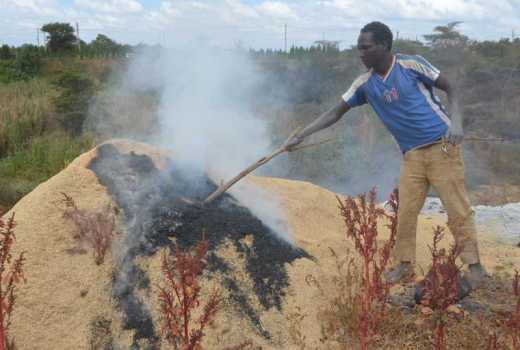×
The Standard e-Paper
Fearless, Trusted News

For many years, Mwea Irrigation Scheme farmers have grappled with disposing of rice stalks and husks, which take a long time to decompose.
For more than 60 years, since the formation of the Mwea Irrigation Board, farmers have had to burn the stalks and husks, which presents another challenge - producing too much ash.